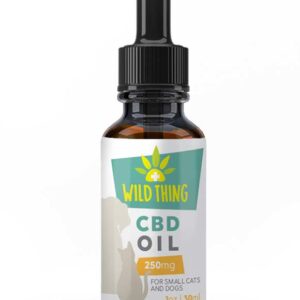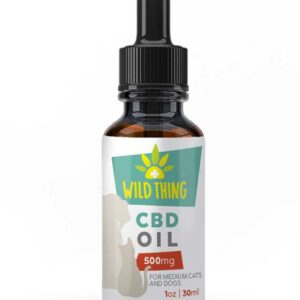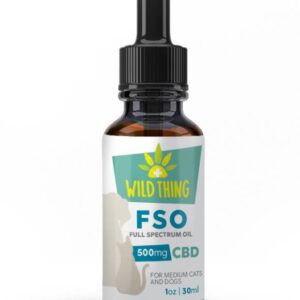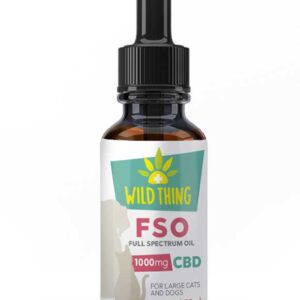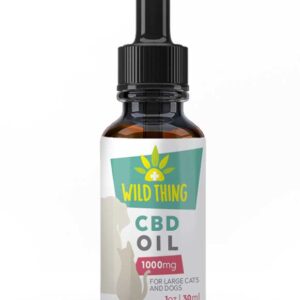When you decide to make the jump into pet parenthood, there are a lot of new obstacles and lists of information that you need to know. Many pet owners think that getting a puppy or a doggy rescue is as simple as taking them home and feeding them every day. The reality is, it’s much more work than that. Owning a dog, puppy or pet is a big responsibility and ensuring they are the healthiest they can be is imperative to proper pet care. Aside from exercise and ensuring they’re getting the right nutrients from dog food, taking care of their body and immune system health is just as important. That’s why, in this article, we will explore puppy vaccines, the DHPP vaccinations, what it is and the schedule for vaccinating your dog or puppy against harmful infections & virus’.
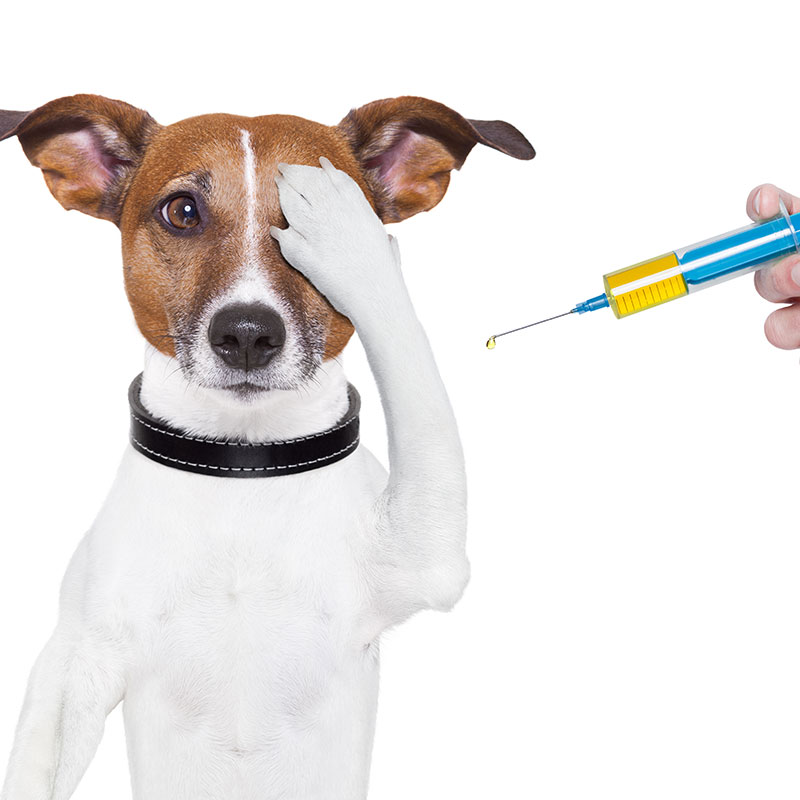
What Is DHPP?
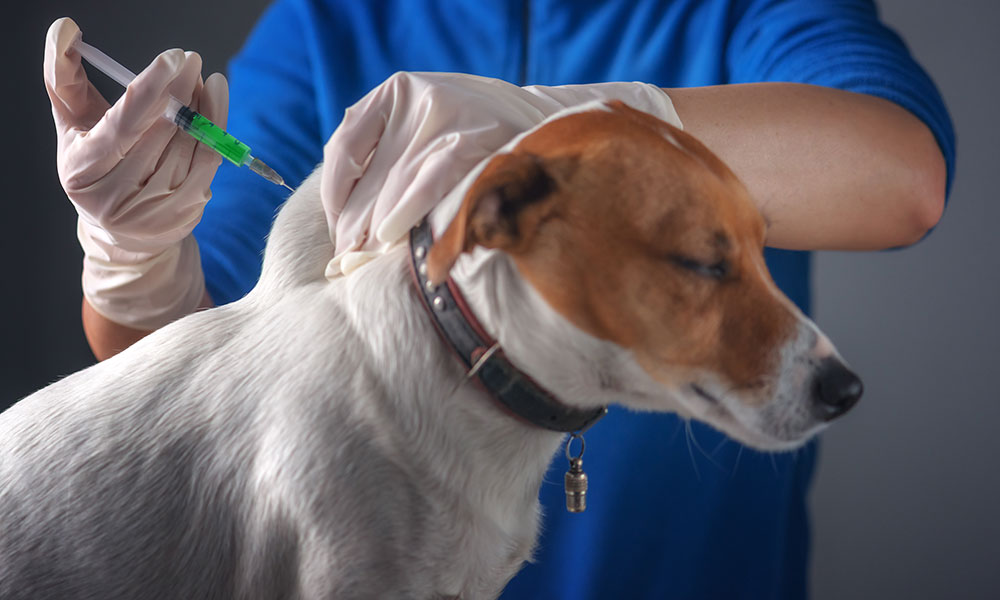
DHPP is a vital vaccination that is administered to puppies at a relatively young age to prevent a list of harmful infections or diseases they could acquire when they’re immune system isn’t fully developed. While it is recommended for puppies and often referred to as “the puppy vaccine”, it can be administered to adult dogs too. If you have recently adopted a rescue, and they are not up to date on their shots, you can give them the DHPP shot as well. DHPP stands for: Distemper, Hepatitis, Parainfluenza and Parvovirus. It is a 4-in-1 shot that often is confused with the DA2PP vaccinations. While they are often used interchangeably, DA2PP offers protection against coronavirus and adenovirus type 1 (hepatitis). While the extra protection is a nice addition, it is not always offered in conjunction with the DHPP shots.
Canine Distemper
Canine Distemper is a very serious affliction that affects most dog breeds and, unfortunately, has no cure. According to PetMD, CD affects the dog’s gastrointestinal, respiratory and central nervous systems. In the beginning, it presents itself as a sneeze and cough that also produces a thick mucus from the nose and eyes. Other symptoms of Canine Distemper range from fever and vomiting to lethargy and depression. While disinfecting and ensuring that your puppy and dog’s living space or kennel is as clean as possible, without a vaccination they can be severely susceptible to the disease. If your dog shows any signs of this illness, you could schedule a vet visit immediately. Canine distemper is an extremely serious and contagious illness that is often fatal.
Hepatitis
Canine Hepatitis or “Infectious Canine Hepatitis, is a common disease across the dog species. It is easily spread through urine, feces, saliva, blood or a sneeze from an infected dog. It often can run its course and see dogs make a full recovery, but it can also lead to serious complications and death. Hepatitis symptoms include depression, fever, loss of appetite, coughing, tenderness in the abdomen and, in more serious cases, jaundice and bleeding disorders. Hepatitis, while curable and able to run its course naturally, is not an enjoyable disease for your dog and that’s why a vaccination to help prevent it is necessary.
Canine Parainfluenza
Parainfluenza is often referred to as kennel-cough. The canine parainfluenza virus (CPIV) is another highly contagious virus that affects the respiratory system of your dogs. The term “Kennel-cough” is used to describe this ailment because of its highly contagious nature. If one dog at the vet or shelter has it, it can quickly spread throughout the rest at a very fast pace. If your dog hasn’t been vaccinated and is showing signs of kennel cough (honking cough/excessive throat clearing/gagging) you should schedule a vet visit immediately. DO NOT bring your dog into the vet without being told to by your veterinarian first. Due to its highly contagious nature, you could put other animals at risk.
Parvovirus
Often referred to as “Parvo”, canine parvovirus (CPV) is another highly contagious affliction for your pets. Parvo mainly affects dogs and presents signs of vomiting, diarrhea, weight loss, loss of appetite (anorexia) and lethargy. The disease usually forms in puppies between the ages of 6-weeks to 6-months old. Which is why it is one of the ailments covered by the DHPP shot. CPV can present itself in different forms from attacking your dog’s intestinal tract and/or cardiac health. Parvo is another highly contagious disease that can spread rapidly through kennels and boasts no cure. If a dog is infected with Parvo, they must be monitored until the infection has managed to run its course. The infection is very serious in puppies, often leading to death, and shows a 70% mortality rate in adult dogs with proper treatment.
Puppy Shot Schedule
While the goal of this article is to educate the owner on the diseases covered by the DHPP shot, it can be quite scary to read. Understanding the symptoms and signs of any one of these afflictions could be the difference between life and death with your puppy or adult dog. Which is why the need to vaccinate them as puppies is imperative. Doing so not only protects your dog(s) from harmful infections or diseases, but protects other dogs as well. Adult dogs can receive the DHPP shot at any time, once a vet has cleared them to do so, but if you have recently adopted a new puppy, there is an age criteria they should meet before they are given the vaccine. On average, puppies should get their DHPP vaccination when they are around 10-12 weeks old. Boosters may be required at the 14-16 week and 12-16 month stages as well.
Conclusion

We have stated it time and time again, dogs are not simply a set and forget it pet. Just like us, they require special attention when it comes to their health. Especially in their early, more formative years. Aside from worrying about our own pet’s health, we have to remain mindful of the health of other pet owner’s fur babies as well. Most of the ailments and infections that are protected against by the DHPP vaccination are highly contagious and spread rapidly throughout the dog society. Doing our part as pet owner to curb that to the best of our ability is our responsibility as owners. We don’t want the life of our pets to be at risk, but we also don’t want to put others at risk at the same time. We have to remain vigilant and make our pet’s health our first priority. Catching symptoms of infection early or stopping it before it becomes an issue, through vaccinations, is an important first step in pet ownership and will likely set the future tone and foundation of your pet’s health.
Frequently Asked Questions (FAQ)
How often do dogs need a DHPP shot?
The first DHPP vaccine for dogs will likely be administered at the 10 to 12 weeks old stage, but 2 more follow up shots will likely be scheduled.
Is DHPP necessary for dogs?
Yes. The infections that the DHPP vaccine for dogs helps to prevent are often highly contagious and fatal. While some dogs can recover from certain ailments the shot prevents, protecting other dogs from spreading the diseases is an imperative step in herd protection.
Which dogs vaccines are absolutely Necessary?
According to the American Animal Hospital Association, recommendations for “core” vaccinations include: Rabies, distemper, parvo and adenovirus (hepatitis).
Is DHPP and DAPP the same?
Yes. DHPP dog vaccination and DAPP are shots that protect against the same ailments. The main difference between the two vaccines is that DHPP includes “hepatitis” while DAPP covers adenovirus type-1, which is hepatitis.
How do dogs get DHPP?
Simply by scheduling a veterinarian appointment to set up an appointment. Dog owners can easily make a phone call and ask their vet about the DHPP shot. They will know what information you need and set up a shot schedule for your young or adult dog.
How much does DHPP vaccination cost?
On average, the DHPP vaccine for dogs will cost upwards of $100. The shots are administered in a series of three, starting at 6-12 weeks and running though to 16 months.
Want to Learn More?
Download our AILMENT GUIDE NOW.
PLUS! all FIRST TIME buyers get 50% off their additional order. Visit verlota.com to get your discount code.

